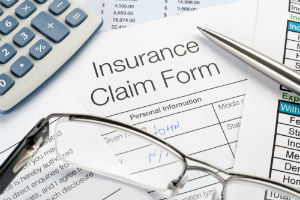 Texas car insurance claims are governed by a fault system that requires the insurance company of the driver who caused the crash to pay for the damages suffered by the other driver.
Texas car insurance claims are governed by a fault system that requires the insurance company of the driver who caused the crash to pay for the damages suffered by the other driver.
This means that if you were injured in a Fort Worth car accident caused by another driver, you can file a claim with the other driver’s insurance company to recover compensation.
Liability Coverage
When you file a claim with another driver’s insurance company, you will be seeking compensation from the other driver’s liability coverage.
All drivers in Texas are required to have liability coverage in the following amounts, at minimum:
- $30,000 for each person injured in an accident
- $60,000 per accident for all injuries suffered
- $25,000 per accident for property damage
You can obtain compensation from the policyholder as long as this person or certain other individuals were driving the car when the accident occurred, including:
- Family members, including spouses, children, in-laws, adopted children, foster children and anyone else living in the policyholder’s home who is related by blood, marriage or adoption
- People driving the policyholder’s car without permission
- Family members who are away from home attending school
- Spouses who are not living in the policyholder’s home during separation
However, if the at-fault party has a named driver insurance policy, it will only apply individuals named in the policy.
Liability insurance provides compensation for any of the following damages you suffered in the accident:
- Medical care
- Funeral costs
- Lost wages
- Vehicle replacement or repair costs
- Vehicle rental while the primary vehicle is being repaired
- Pain and suffering
Compensation from Your Insurance Policy
Another way to obtain insurance compensation after a Texas auto accident is to file a claim with your insurance company. However, you will only be able to obtain compensation if you have one or more of the following types of coverage:
Uninsured or Underinsured Motorist Coverage
This type of coverage provides compensation for damages suffered in accidents caused by:
- Drivers who do not have car insurance
- Drivers who do not have enough coverage to pay for all of the damages you suffered
- Hit-and-run drivers
There are two types of uninsured or underinsured motorist coverage:
- Bodily injury – This pays for medical costs, lost wages, pain and suffering, disfigurement, and permanent or partial disability. This type of coverage has no deductible.
- Property damage – This covers car repairs, rental vehicles and damage to personal property within your vehicle. This coverage carries a mandatory deductible of $250.
This form of insurance applies to the policyholder and his or her passengers, family members and others who were driving your car with your permission.
Collision Insurance
Texas does not require drivers to purchase collision coverage. However, many drivers have it because they owe money on their cars and lenders require drivers to purchase collision coverage if their cars are not paid off.
Collision coverage provides compensation for damage to your vehicle from a car accident. An insurance adjuster will evaluate your car and if he or she decides it is fixable, you will receive compensation for repairs.
If the adjuster determines that the car is worth less than the cost of repairs, the insurance company will pay you the actual cash value of your vehicle. Actual cash value is the current value of your vehicle minus any depreciation.
However, you can only recover compensation up to the limits of your policy. This means that you will not recover all of the actual cash value if it is greater than the limits of your policy.
Comprehensive Insurance
This coverage is also required if your car is not paid off. Comprehensive coverage pays to replace or repair your car if it is stolen or damaged due to:
- Fire
- Vandalism
- Hail
- Falling objects
- Any events besides collisions
Comprehensive coverage will only pay compensation for damages from theft if you report it to the police.
Some policies also provide a set amount of compensation each day to cover the cost of renting a car while your primary vehicle is repaired or replaced. However, it will only apply if your vehicle was harmed by an event covered by your policy.
Medical Payments
Medical payments insurance covers medical and funeral costs related to a car accident. It covers family members, passengers in your vehicle, and other injured parties, no matter who was at fault for the accident.
Personal Injury Protection
This pays for medical expenses and 80 percent of lost income as well as the expense of hiring a caregiver.
Some insurance companies automatically include personal injury protection in their car insurance policies. Insurers who include this are required to offer a minimum of $2,500.
Towing and Labor
This coverage pays expenses related to towing your car if it is not drivable. You can also obtain compensation for labor charges from changing flat tires or jump-starting your car if the battery is dead.
Skilled Attorneys Can Help Obtain Fair Compensation
Insurance may not provide enough coverage for all of the costs associated with a car accident. It may be necessary to file a personal injury lawsuit against the at-fault driver to recover the difference in compensation between what insurance will pay and the total cost of the damages.
The FTW personal injury attorneys at Anderson & Cummings can help you file a personal injury claim. We can also assist you throughout the insurance claims process to help ensure you receive all the compensation you deserve.
Call (817) 920-9000 or complete our Free Case Evaluation form today.
